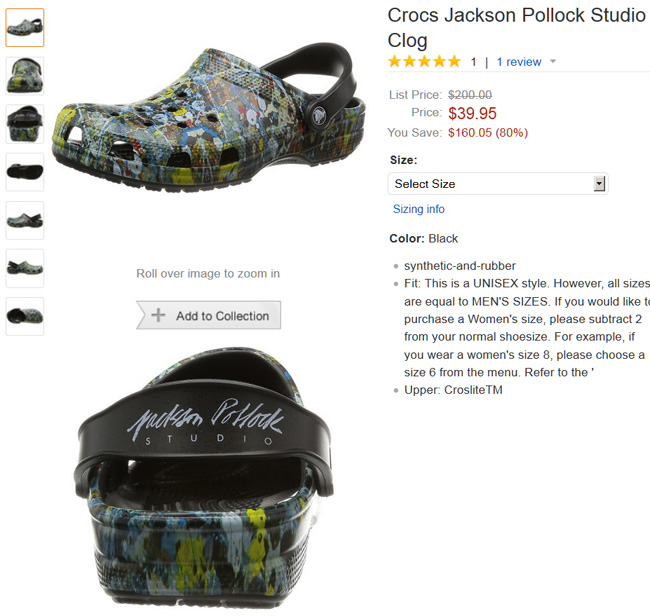Write news stories in the Dot Com Two, clickbait era using this one weird trick




Write news stories in the Dot Com Two, clickbait era using this one weird trick




For the previous post, felt compelled to skim New York magazine's hagiographic profile of Jonah Peretti.
Here's how the magazine explains Eyebeam (not sure if they know it's still in operation):
After MIT, Peretti moved to New York to take a job as director of research at Eyebeam Art + Technology Center, a sort of cyberpunk collective started by John Johnson, an heir to the Robert Wood Johnson fortune. "It was this moment of nascent Internet culture colliding with the art world," Johnson says. Peretti began working with what he called "contagious media," attracting a group of collaborators like Ze Frank, the artist Cory Arcangel, and Duncan Watts, a Columbia University professor who studied how ideas moved through social networks.
"Jonah, at least initially, came very much from the viewpoint of 'I can engineer things,'" Watts recalls. "I came from 'No you can't, you just get lucky.'"
"At least initially?" When did he decide it couldn't be engineered? Guess I need to re-skim.
I remember Arcangel telling me about his contagious media group that met once a week, or month. I thought it sounded, to use a term from theory, "deeply full of shit." I understood that a business person or advertiser might want to study viral flow but why would an artist care about that? So you could goose your own stats? Make better animated GIFs? This was around the time Eyebeam invited me to be an Eyebeam Reblogger, where volunteering personages sort of DJ'd content from RSS feeds, using software Peretti and Michael Frumin developed. This was 2004. Peretti left Eyebeam to do terrible work at the Huffington Post and then terrible work at Buzzfeed.
(Eyebeam, that wacky cyberpunk collective, removed all the Reblog archives a few years ago but my three weeks' rebloggin' has been saved on my home cloud; eventually will put it back up for history and nostalgia. FYI Tumblr borrowed the reblog concept from Peretti/Frumin.)

Hi, I'm Dylan Matthews (named after Thomas not Bob) and write articles for Vox like "15 FUNsettling facts about drones," "Your favorite singers' vocal ranges, in one chart," and "Each state's largest minority, in one map." As you can guess, I worship Buzzfeed and its genius founder Jonah Peretti. It's especially cool how he ropes you with clickbait headlines that play on your inherent narcissism ("hey, this is about me!"), simultaneously delivering you to advertisers and inflating click counts so publications like New York think Buzzfeed is a thing.
So, I found out what many people already knew, that Peretti had an arty background and read theory in college, and something you may not have known -- that he wrote a paper in the '90s based on Deleuze that criticized MTV for the very things Buzzfeed does now. Except Peretti, because he's Peretti, isn't a foul hypocrite but actually this Warhol-like figure that's critiquing all the way to the bank, and at the same time showing old media how they can combine advertising and journalism and ride the wild whirlwind of VIRAL CURRENTS that supposedly no one can get a handle on.
So I like, "reached out" to Peretti and asked if his old college "critique" paper was in fact a blueprint for his current venue's outstanding marketplace success and you know Peretti said? You know what he said?
He emailed me back and said "LOL." That's all. Can you even comprehend how cool that is?
Background links:
http://www.vox.com/2014/5/20/5730762/buzzfeeds-founder-used-to-write-marxist-theory-and-it-explains
http://nymag.com/news/features/buzzfeed-2013-4/
http://www.critical-theory.com/from-deleuze-to-lolcats-the-story-of-the-buzzfeed-guy/
http://www.critical-theory.com/buzzfeed-founder-responds-to-his-marxist-roots-lol/

*** not satire *** not satire *** not satire *** not satire ***
hat tip ben_dover
Dinnertable conversation from last night, as near verbatim as possible:
You said you were making techno music.
Yes.
That's what you call it, techno music?
It's techno in the sense of, it's all electronic. About 50 percent of it has a dancefloor beat, but there are elements of what you could call classical. Parts that harmonize or play in counterpoint, changes of tempo, a structure with distinct parts that are developed. And when I say "electronic," the sounds could be samples of traditional instrument sounds, like a drum hit or piano.
And how is this being heard?
I have an account on Bandcamp, where the tunes are offered for sale.
Oh, you're actually selling this.
Yes.
How much are you making?
I'm not going to share my balance sheet with you. You can also stream the music, you don't have to buy it.
And people dance to this music? Your music?
I've performed it live but it wasn't as a DJ -- it was in a live music or gallery venue. I have DJ'd and people have danced but I wasn't playing my own tracks.